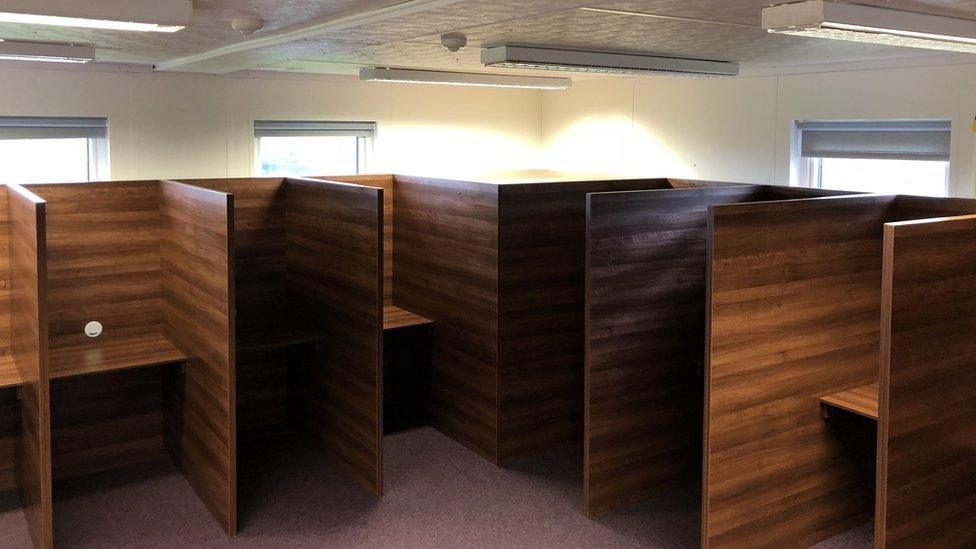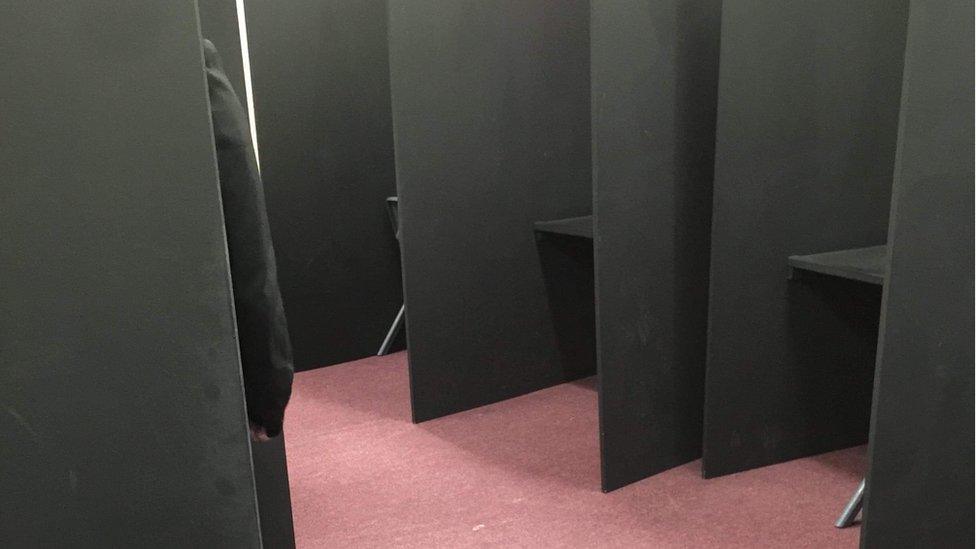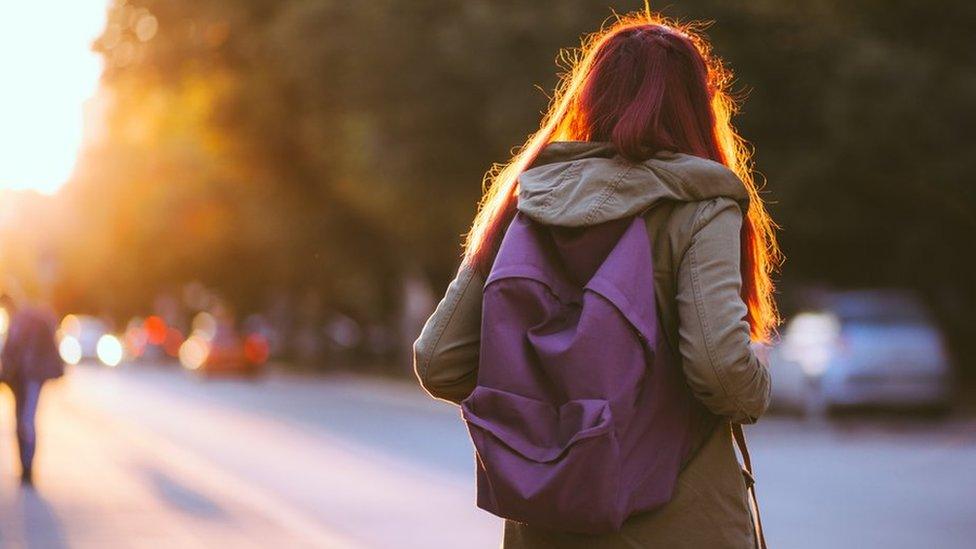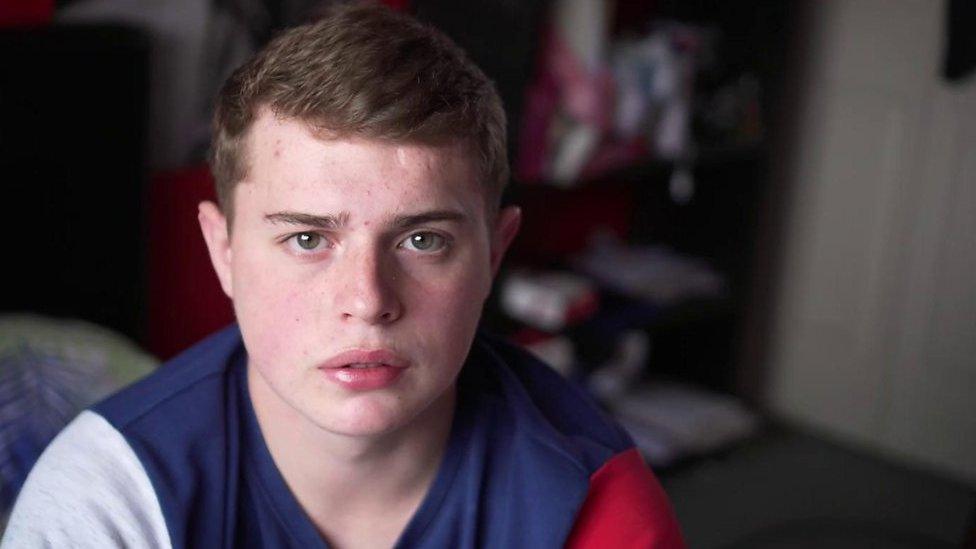Pupils shut in isolation rooms for hours, teachers say
- Published

Isolation booths are used in hundreds of schools in England
Children are being held in isolation rooms for as long as six hours a day for minor infringements of behaviour policies, a teachers' conference heard.
National Education Union delegates described how isolation booths were filled with children with special needs and those with difficult home lives.
They said children turning round in class, or speaking to canteen staff, could mean sanctions in some schools.
Anna Wolmuth, a teacher from Islington, described the practice as child abuse.
"Many of these young people have autism, or some form of special educational need, and to get them to sit in a confined space in silence without the support that they need - I think it is inhumane," she said.
'Severity'
She talked about a school in her area which, she said, had a particularly tough zero tolerance behaviour policy, and had almost acted like a "feeder school" for the pupil referral unit where she works.
Carole Buxton, a former maths teacher at a special school from Hackney, was also clear that zero tolerance behaviour policies often led to pupils being excluded.
She said: "In some schools if a pupil turns round it's an immediate detention.
"It's the severity and the rigidity of the punishment."
She highlighted cuts to the pastoral system of support for pupils, adding: "It's the support staff who are being cut.
"And it's the support staff who go out and have a conversation with the child who's been sent out of class."
Schools she had worked in had used a restorative justice approach, and understood the importance of seeing behaviour as a communication, she said.
Callum Wetherill, a special needs teacher from Leeds, said children do not respond well to being ignored.
He said that instead of being made to sit in an isolation booth doing maths sums again and again until they get them right, children could be treated in a more thoughtful way, with the causes of their problems being examined.
'Punished for sighing'
He described how in one large academy trust, pupils were sent to a "consequence room" for minor misdemeanours in class.
If they "fall foul of the consequence room", he said, they are put in isolation for six hours.

The NEU has concerns about isolation booths
A breach of the consequence room could be shouting out, using their mobile phone, communicating with other pupils, tapping, chewing, sighing or swinging on their chair, among other things.
Another delegate, Sally Kincaid, described how a seven-year-old boy she knew had been pushed into the consequences system in his school for saying "thank you" for his lunch to canteen staff.
It was against the rules to speak to the staff serving school lunches.
But Stuart Allen, from Torfaen, said the opportunity to remove a child from class could be a saviour sometimes.
"I remove children from the classroom because I care about their well-being."
'Against telling off?'
And Simon Clarkson, speaking for the union's executive, said he did not believe in zero tolerance approaches to behaviour.
But he feared the NEU would be painted as being "against telling off children" and not in favour of "protecting the hardworking children in the classroom".
The union voted to undertake research into school behaviour policies and produce guidance for schools in this area, as well as offering support to members raising concerns about the issue.
Last year a BBC investigation found more than 200 pupils had spent at least five straight days in isolation booths in schools in England the previous year.
The research also found more than 5,000 children with special educational needs also attended isolation rooms at some stage.
The Department for Education has said isolation rooms should not be used for longer than necessary, and the health and safety of pupils should always come first.
- Published15 April 2019

- Published12 November 2018
